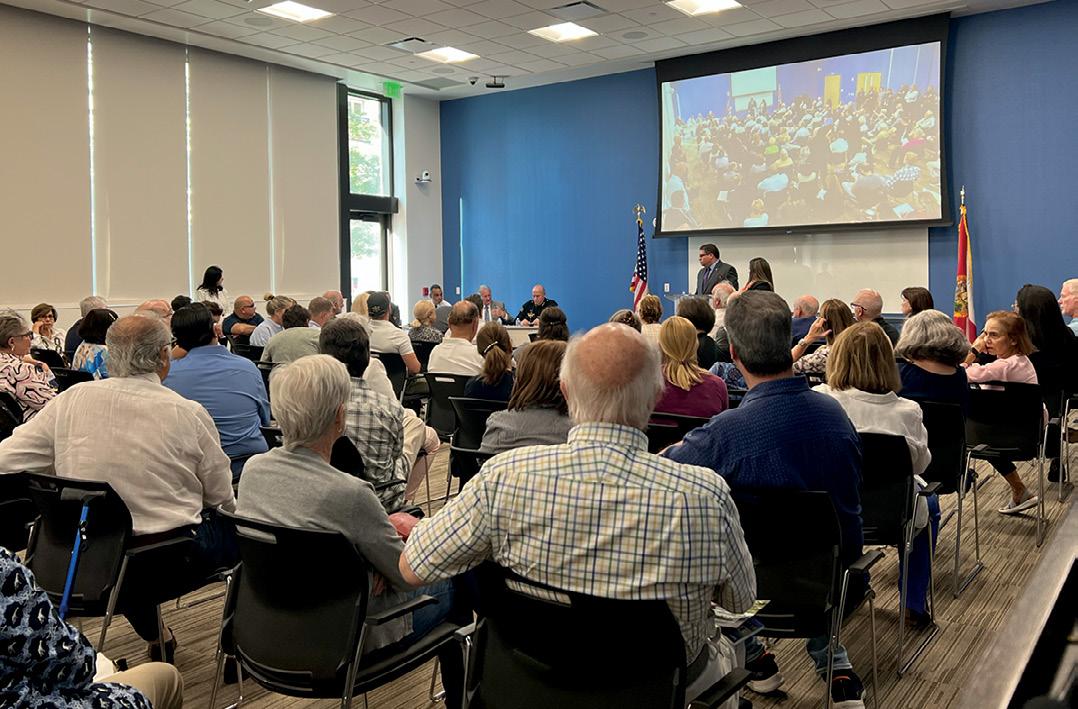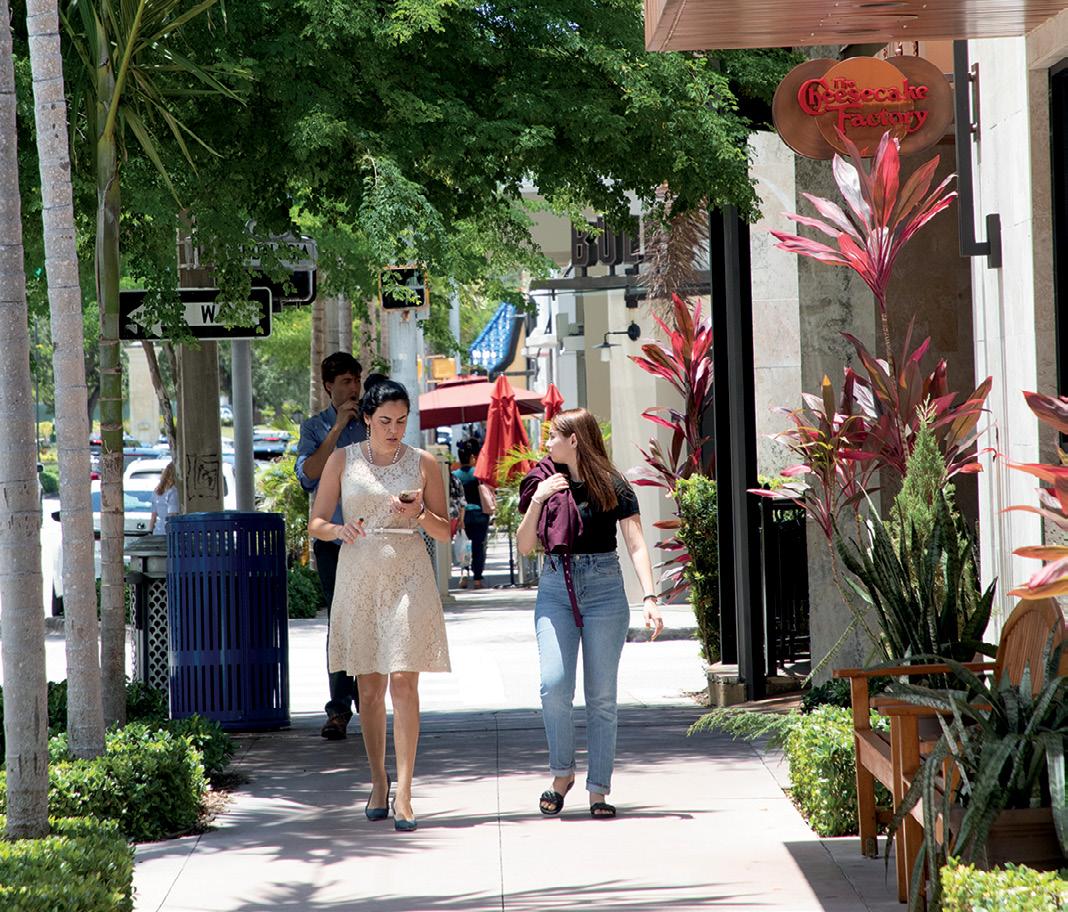
2 minute read
Talk of the Town
transparency and greater public access. But two recurring subjects dominated the night: overdevelopment and the Mobility Hub.
Multiple residents spoke out about the city’s growing developments encroaching on their neighborhoods and creating secondary issues, such as a lack of available street parking and an increase in traffic. Attendees pointed out how some of the larger developments deviate from the architectural vision for the city. Questions were also raised about the Commission bending zoning codes to cater to developers. The overall message from most of the crowd: “We don’t want Coral Gables to turn into Brickell Avenue.”
Residents were also up in arms against the Mobility Hub, the city’s proposed parking garage and micro-mobility station planned to replace Parking Garage No. 1 at 245 Andalusia Avenue, directly behind the Miracle Theatre on Miracle Mile. From criticizing the design to pointing out empty parking spaces in other downtown garages, many residents firmly voiced their criticism for the project. The funding was also put to the question, from the $2 million-plus spent on the design alone to the current $63 million price tag the project will ultimately cost.
Town Hall: “A New Day in Coral Gables”
The meeting room at the Police and Fire Headquarters was packed the second Monday evening in May, filled with Coral Gables residents eagerly waiting to voice their opinions on the direction of the city at the behest of the Commission’s newest members, Commissioners Ariel Fernandez and Melissa Castro. An estimated 150 attendees – made up of residents, police officers, city staff, and the remaining members of the Commission (Kirk Menendez, Vice Mayor Rhonda Anderson, and Mayor Vince Lago) – participated in the lengthy town hall meeting.
Commissioner Fernandez, who called the meeting, said it was “a great opportunity to hear from residents about the issues that are important to them… We’ve heard about them during the campaign, but this is an opportunity to ask staff questions directly and get answers as to what’s going on.”

For the most part, Fernandez and Castro listened to the residents, occasionally adding a glimpse into their perspectives on certain topics and pressing city staff for concrete answers. Castro emphasized her role as the residents’ advocate, stating that she will vote on issues based on their feedback. The crowd seemed optimistic with this dynamic, providing a round of applause to Fernandez’s statement: “It’s a new day in Coral Gables.”
The Retail Rush
City staff, including City Manager Peter Iglesias and Development Services Director Suramy Cabrera, were placed in the hot seat throughout the night with a few tense moments (and a couple of disdainful laughs and boos from the crowd). The concerns raised by residents covered a myriad of topics, from sidewalk repairs to
With its Miracle Mile streetscape project long in the rearview mirror, Coral Gables is experiencing a retail occupancy that is the envy of other municipalities in Miami-Dade County. According to the most recent Collier’s report, of the 2.5 million-square-feet of retail space in the Gables, only 1.3 percent is vacant, far less than the county average of 3.3 percent. Part of the reason is the surge in foot traffic. Last year, the number of visitors to Miracle Mile rose by 55 percent from the year before, from 431,587 in 2021 to 667,229.
Miracle Mile is not alone in its retail plentitude. The Shops at Merrick Park is welcoming a bevy of new specialty stores anxious to occupy the few remaining empty spaces. Arhaus, an artisan-crafted home furnishings store, will open shortly on the first level, followed











